Indigenous Governance Database
Articles and Chapters
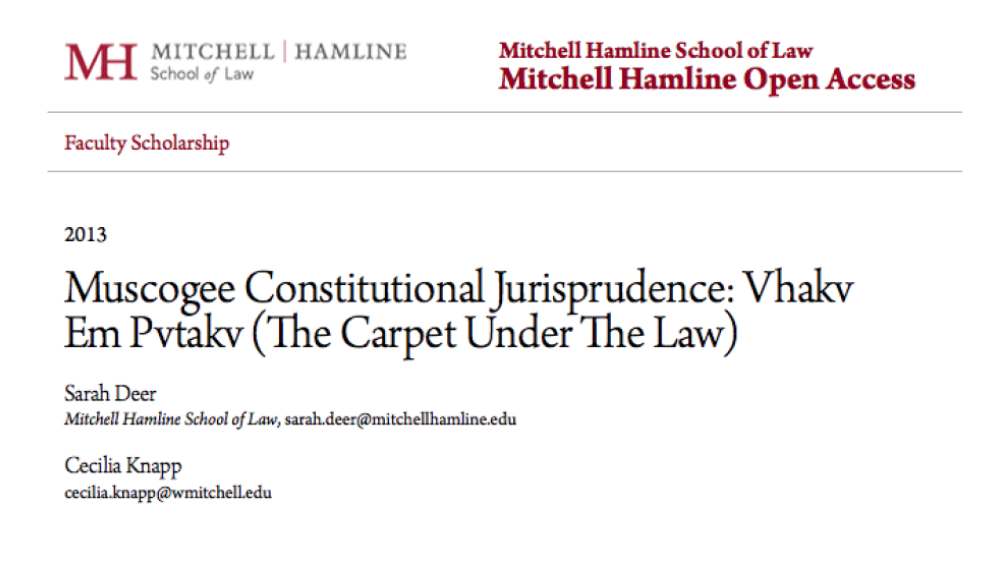
Muscogee Constitutional Jurisprudence: Vhakv Em Pvtakv (The Carpet Under The Law)
In 1974, a group of Mvskoke citizens from Oklahoma sued the federal government in federal court. Hanging in the balance was the future of Mvskoke self-determination. The plaintiffs insisted that their 1867 Constitution remained in full effect, and that they still governed themselves pursuant to it…
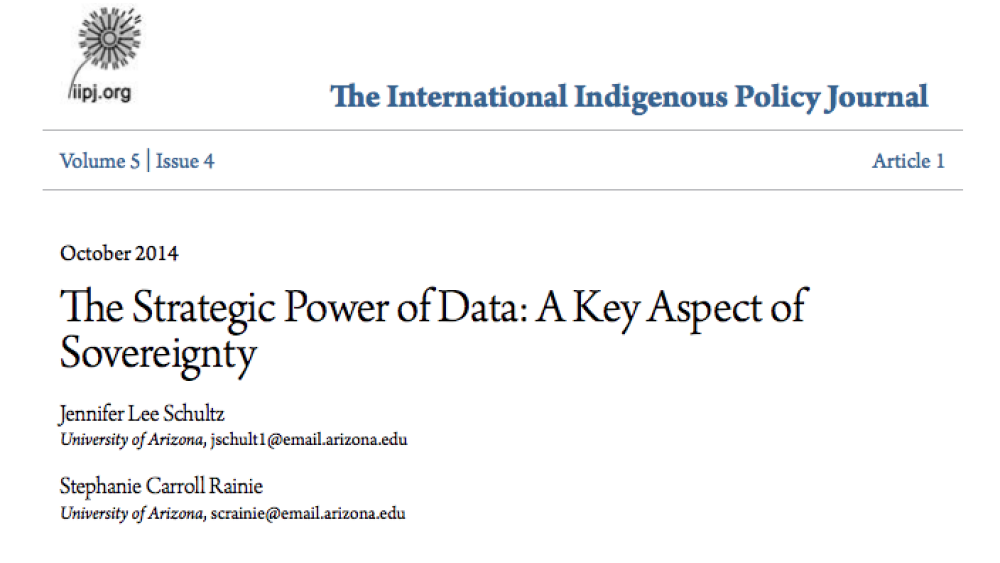
The Strategic Power of Data: A Key Aspect of Sovereignty
The lack of good data about U.S. American Indian and Alaska Native populations hinders tribes’ development activities, but it also highlights a space for sovereign action. In coming years, tribes will no doubt continue to advocate for better national data and at the same time increasingly implement…
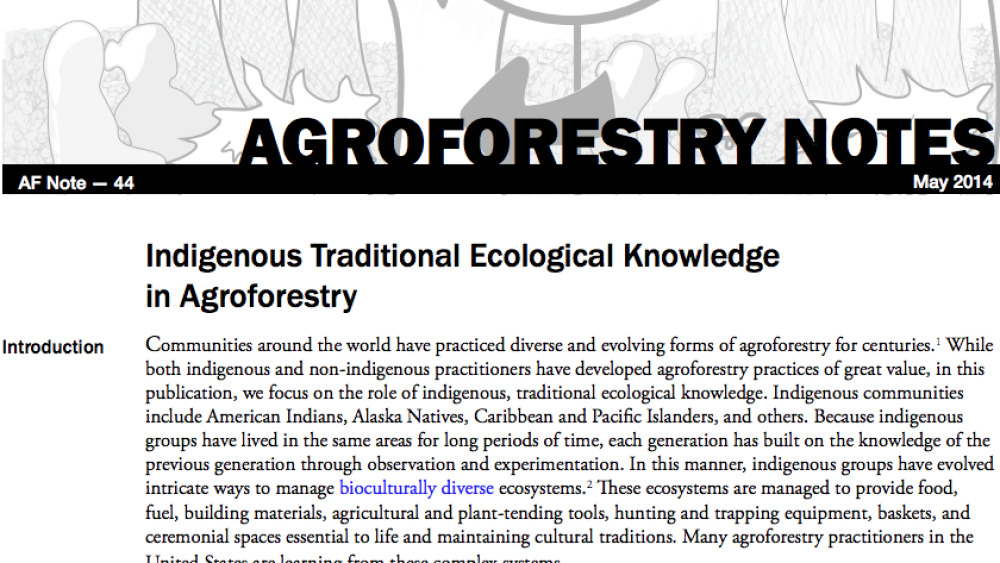
Indigenous Traditional Ecological Knowledge in Agroforestry
Communities around the world have practiced diverse and evolving forms of agroforestry for centuries. While both Indigenous and non-Indigenous practitioners have developed agroforestry practices of great value, in this publication, we focus on the role of Indigenous, traditional ecological…
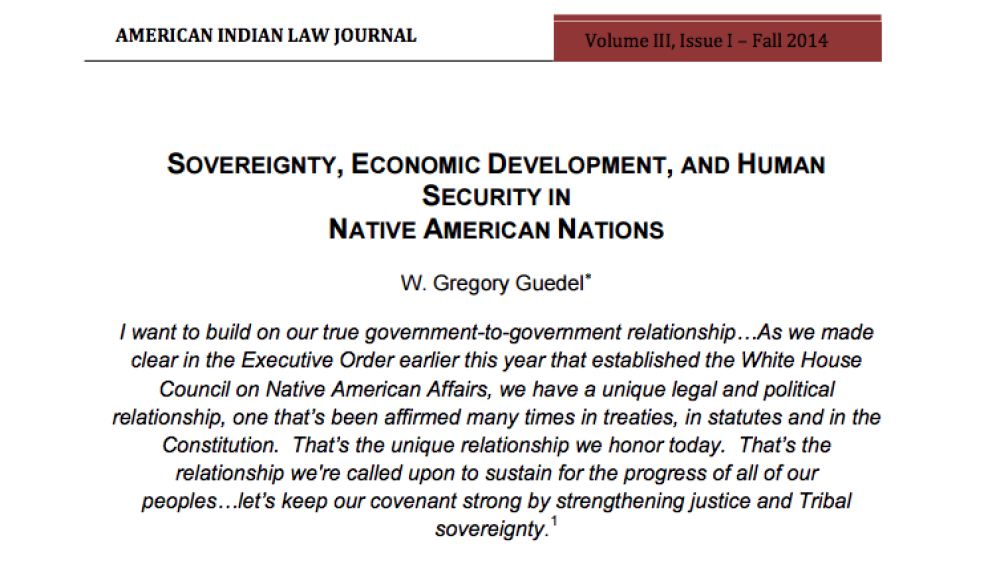
Sovereignty, Economic Development, and Human Security in Native American Nations
This study explores elements of the sovereignty dynamic in the government-to-government relationship between the United States and Native American nations to assess 1) what benefits Tribal communities glean from this unique relationship; and 2) whether enhanced Tribal sovereignty can enhance…
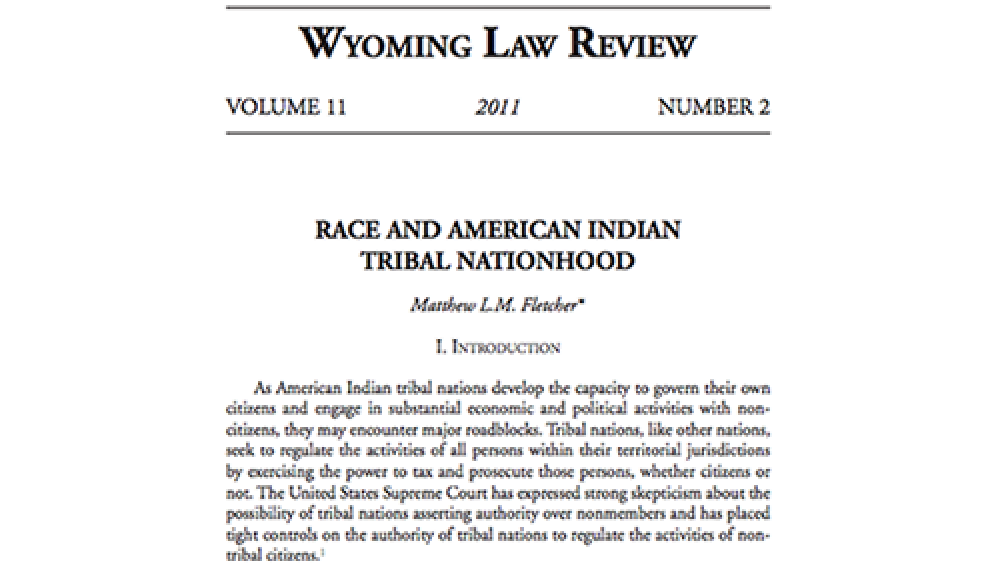
Race and American Indian Tribal Nationhood
This article bridges the gap between the perception and reality of American Indian tribal nation citizenship. The United States and federal Indian law encouraged, and in many instances mandated, Indian nations to adopt race-based tribal citizenship criteria. Even in the rare circumstance where an…
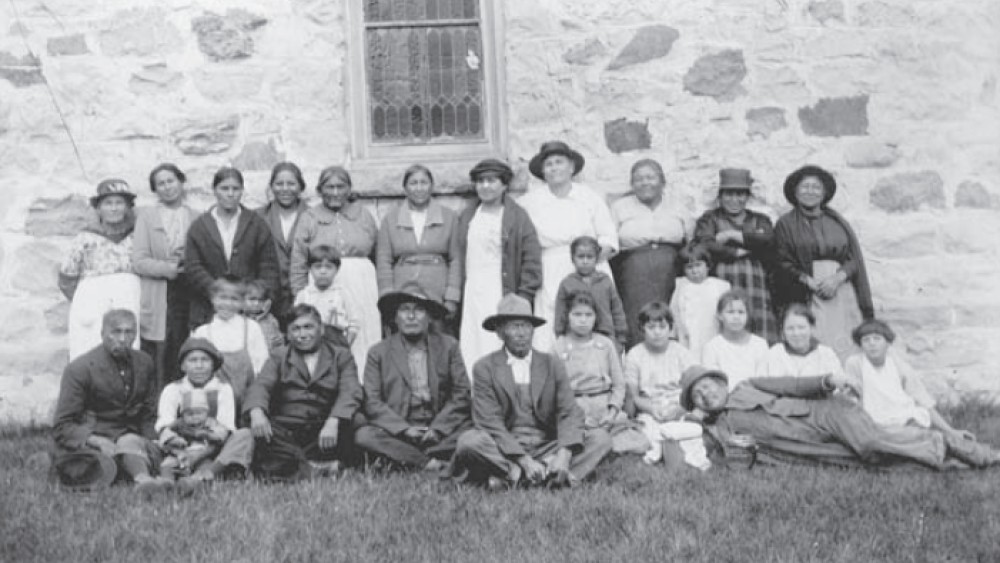
An Anishinaabe Tribalography: Investigating and Interweaving Conceptions of Identity During the 1910s on the White Earth Reservation
This article explores the varied ways in which the Anishinaabeg of White Earth defined themselves during the early twentieth century. It consists of two primary parts. In part 1 I go beyond the artifacts in order to enliven the history, to offer an alternative way of remembering the past. In this…
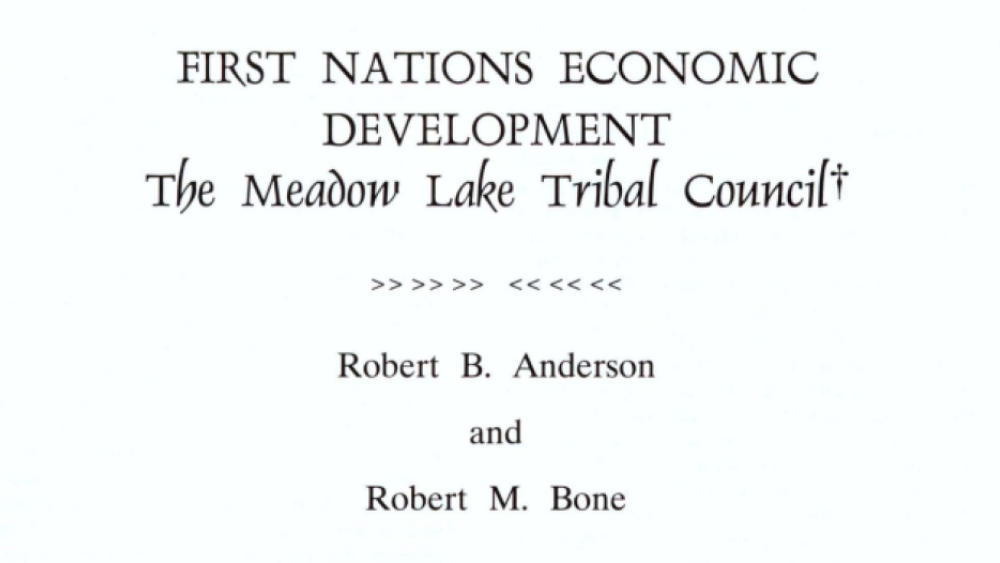
First Nations Economic Development: The Meadow Lake Tribal Council
A new approach to economic development is emerging among the First Nations in Canada. This approach emphasizes the creation of profitable businesses competing in the global economy. These businesses are expected to help First Nations achieve their broader objectives that include: (i) greater…
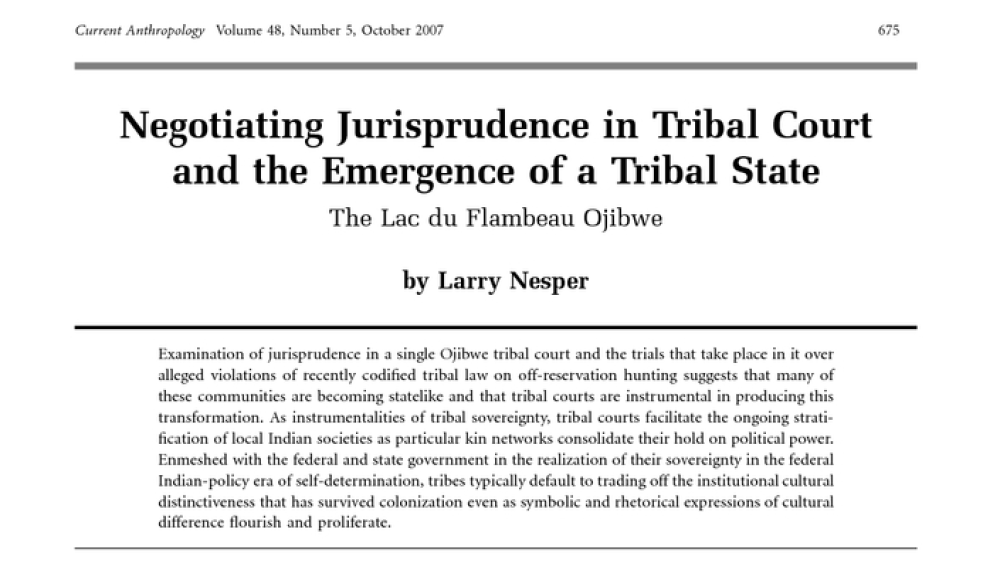
Negotiating Jurisprudence in Tribal Court and the Emergence of a Tribal State: The Lac du Flambeau Ojibwe
The interaction between American Indian activism and changes in federal Indian policy since the 1960s has transformed American Indian tribes from largely powerless and impoverished kinshipâ€based communities into neocolonial statelike entities (Wilkinson 2005).1 Representing themselves as distinct…
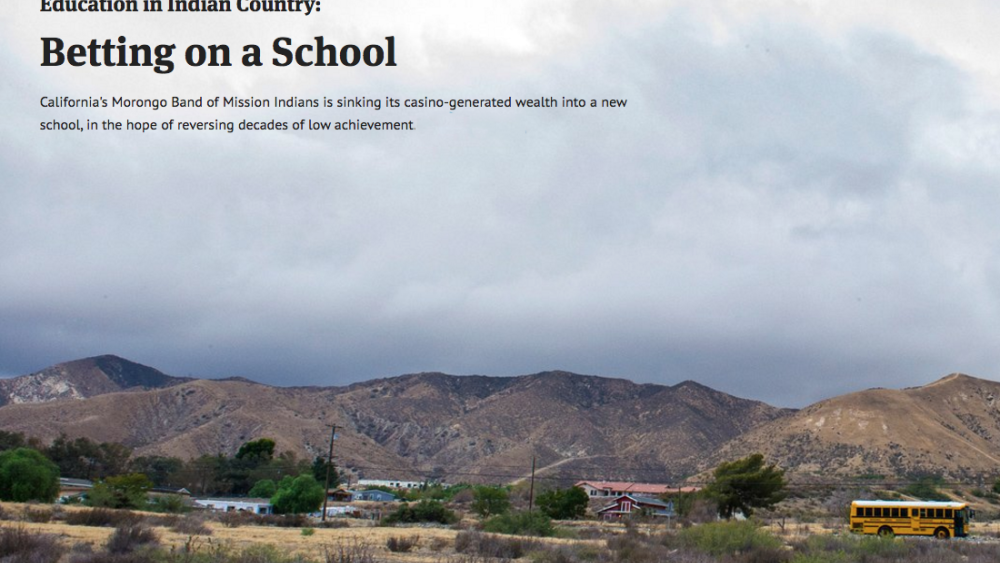
Betting on a School
Ninety miles east of downtown Los Angeles in the San Bernardino Mountains, a school for Native American children peers down onto its main benefactor, a glittering, Las Vegas-style casino and hotel owned and operated by the Morongo Band of Mission Indians. Millions of dollars spent in the casino by…
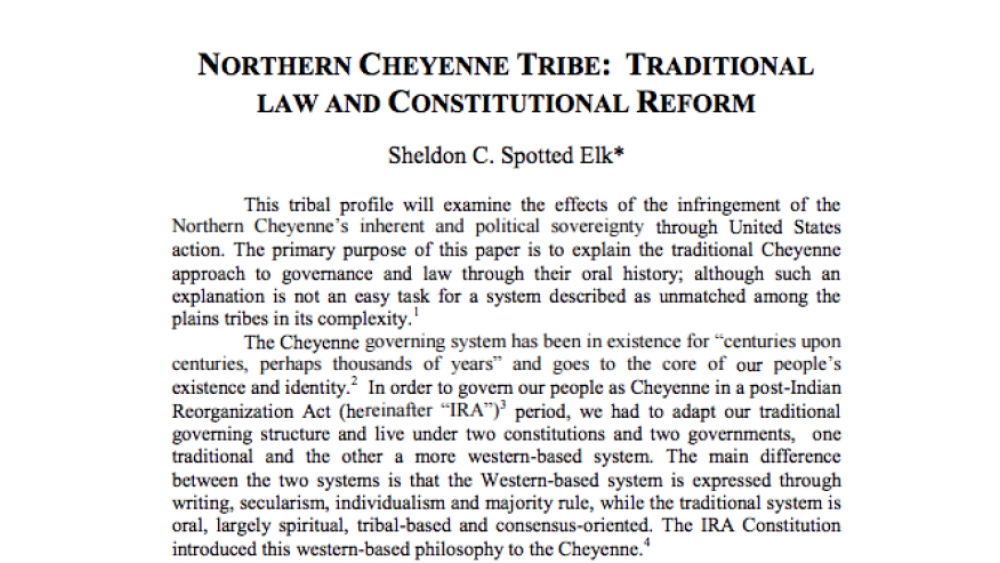
Northern Cheyenne Tribe: Traditional Law and Constitutional Reform
This profile by Sheldon C. Spotted Elk examines the U.S. government's infringement on the Northern Cheyenne's political sovereignty. Most significantly, it examines the relationship between the oral history of the Northern Cheyenne and its impact on traditional tribal governance and law. Following…
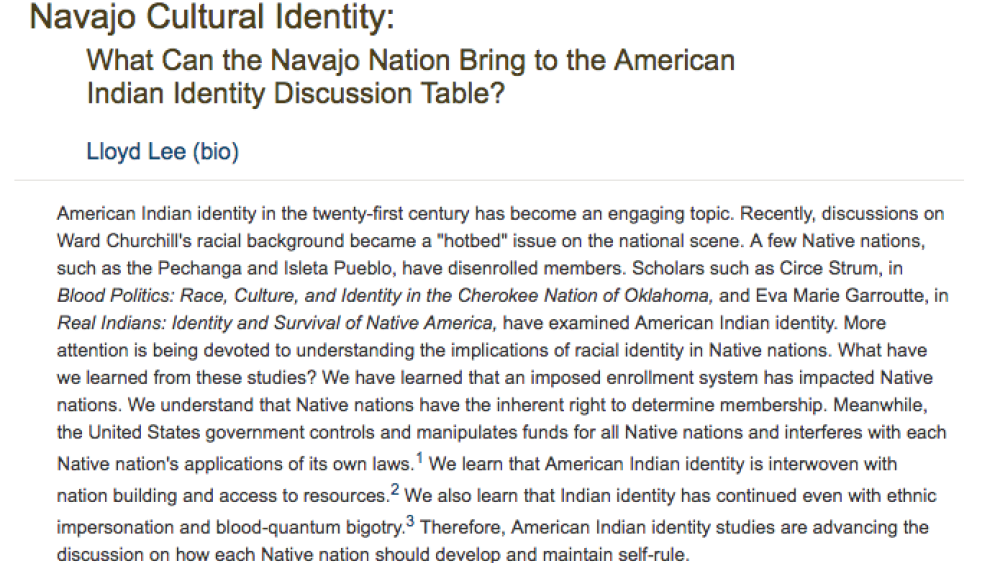
Navajo Cultural Identity: What can the Navajo Nation bring to the American Indian Identity Discussion Table?
American Indian identity in the twenty-ï¬rst century has become an engaging topic. Recently, discussions on Ward Churchill’s racial background became a “hotbed†issue on the national scene. A few Native nations, such as the Pechanga and Isleta Pueblo, have disenrolled members. Scholars such…
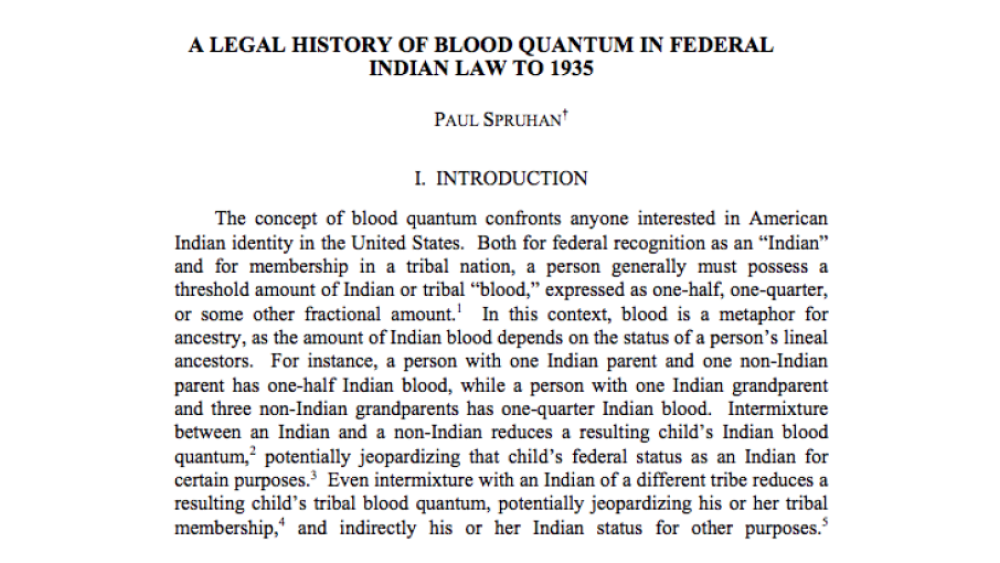
A Legal History of Blood Quantum in Federal Indian Law to 1935
The paper traces the development of the use of blood quantum, or fractional amounts of Indian blood to define Indian in federal law up to the Indian Reorganization Act of 1934. The paper shows that blood quantum was not widely used in federal law until the twentieth century, as the branches of the…
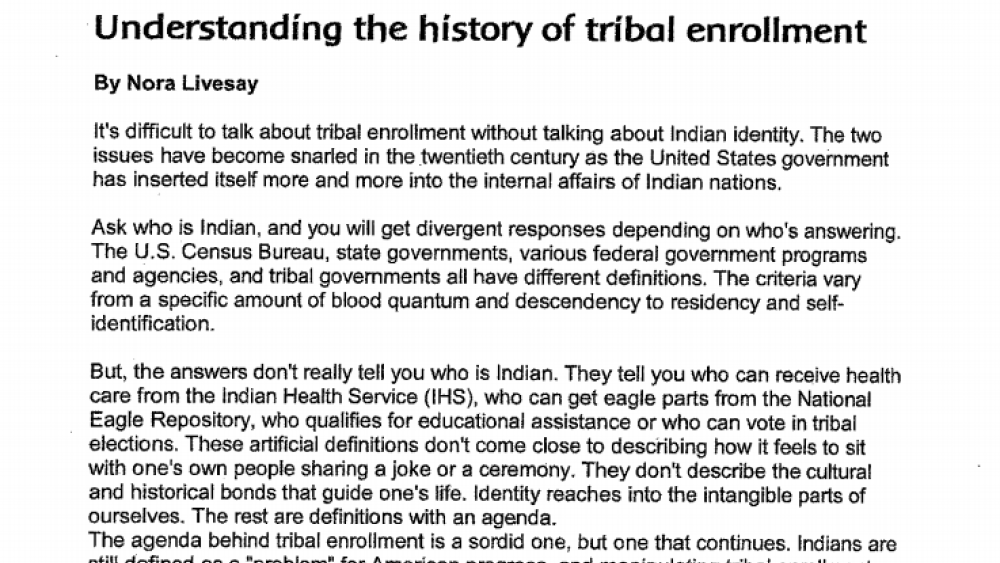
Understanding the history of tribal enrollment
It's difficult to talk about tribal enrollment without talking about Indian identity. The two issues have become snarled in the twentieth century as the United States government has inserted itself more and more into the internal affairs of Indian nations. Ask who is Indian, and you will get…
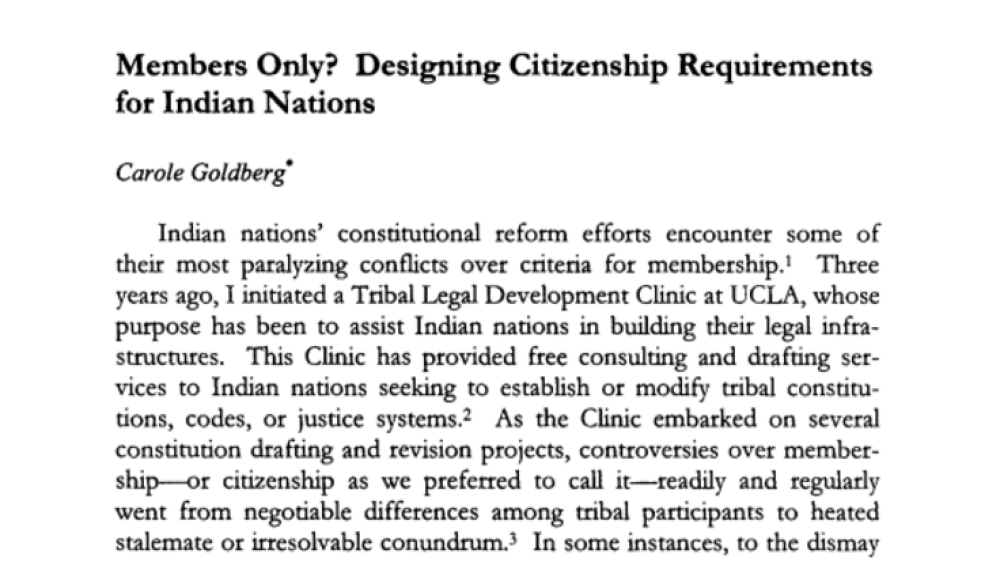
Members Only? Designing Citizenship Requirements for Indian Nations
Indian nations' constitutional reform efforts encounter some of their most paralyzing conflicts over criteria for membership. Three years ago, I initiated a Tribal Legal Development Clinic at UCLA, whose purpose has been to assist Indian nations in building their legal infrastructures. This Clinic…
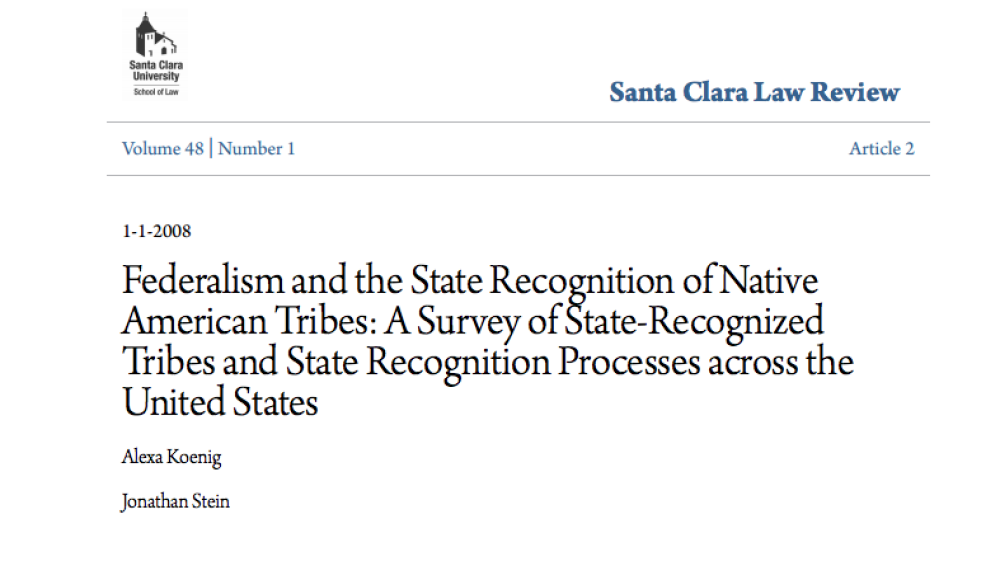
Federalism and the State Recognition of Native American Tribes: A Survey of State-Recognized Tribes and State Recognition Processes Across the United States
In the last few years, states and tribes have increasingly realized that state recognition can serve as an important, albeit limited, alternative to federal recognition. This realization is evidenced by the many states that have recently codified their state recognition processes or are planning to…
![Tribal Law as Indigenous Social Reality and Separate Consciousness: [Re]Incorporating Customs and Traditions into Tribal Law Tribal Law as Indigenous Social Reality and Separate Consciousness: [Re]Incorporating Customs and Traditions into Tribal Law](/sites/nnigovernance.arizona.edu/files/styles/resources/public/resources/Screen%2520Shot%25202016-10-11%2520at%25201.22.13%2520PM.png?itok=r-DrCTma)
Tribal Law as Indigenous Social Reality and Separate Consciousness: [Re]Incorporating Customs and Traditions into Tribal Law
At some point in my legal career, I recall becoming increasingly uncomfortable with the inconsistencies between the values in the written law of various indigenous nations and the values I knew were embedded in indigenous societies themselves. The two are not entirely in harmony, and in fact, in…
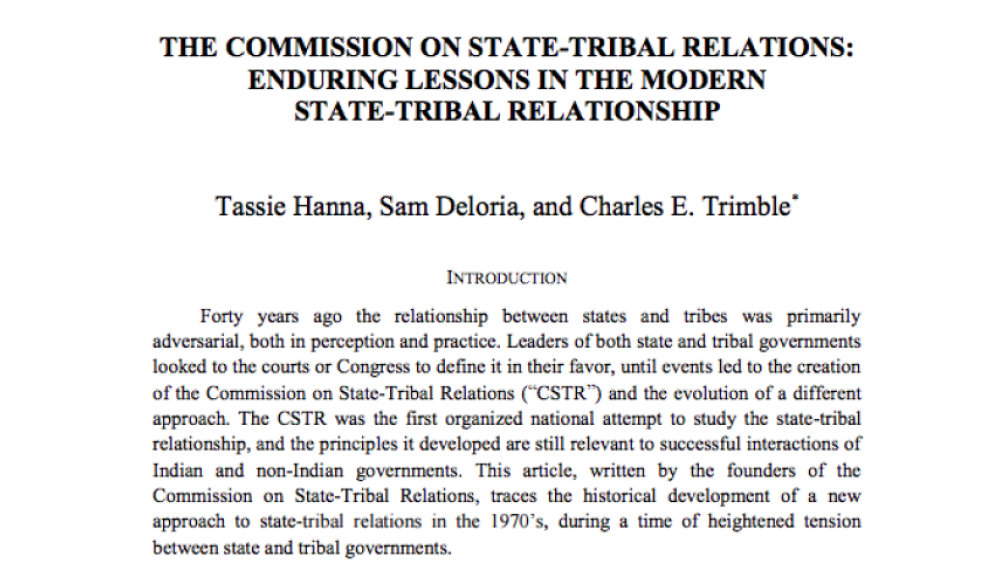
The Commission on State-Tribal Relations: Enduring Lessons in the Modern State-Tribal Relationship
(From the article introduction) Forty years ago the relationship between state and tribes was primarily adversarial, both in perception and practice. Leaders of both state and tribal governments looked to the courts or Congress to define it in their favor, until events led to the creation of the…
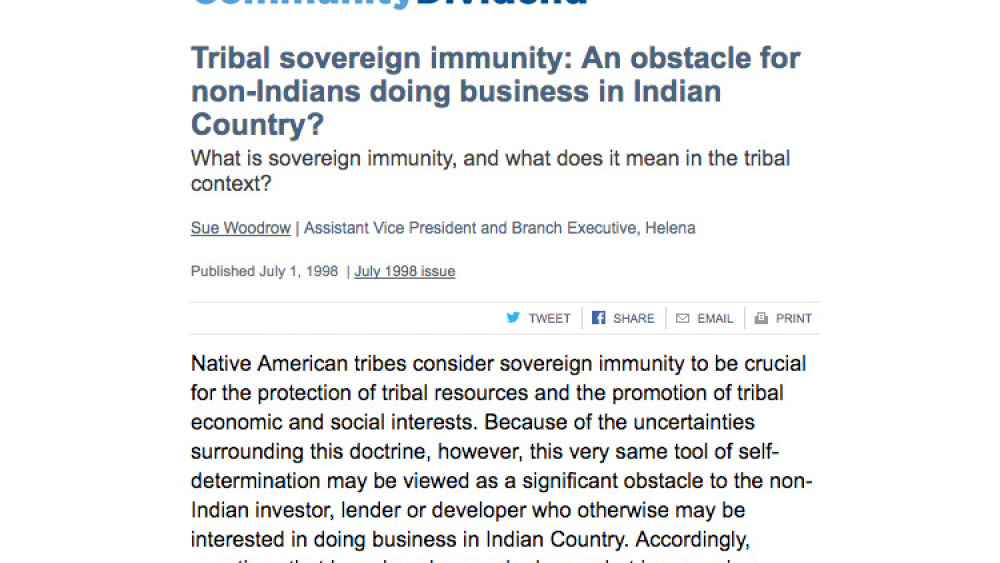
Tribal sovereign immunity: An obstacle for non-Indians doing business in Indian Country?
Native American tribes consider sovereign immunity to be crucial for the protection of tribal resources and the promotion of tribal economic and social interests. Because of the uncertainties surrounding this doctrine, however, this very same tool of self-determination may be viewed as a…

Waiving Goodbye to Tribal Sovereign Immunity?
Tribal sovereign immunity, the legal principle that Indian tribal governments, like other sovereigns may not be sued without their own consent, is under a full frontal attack...Unless Indian Country reacts to such scathing judicial indictments through more strategically thought out assertions of…

Native American Lands and Natural Resource Development
The rules that govern oil, gas and mining on American Indian tribal lands are complex, and the tribes that seek economic development through natural resources face a range of challenges. In this report, Revenue Watch gives an overview of the issues and describes current approaches to natural…
